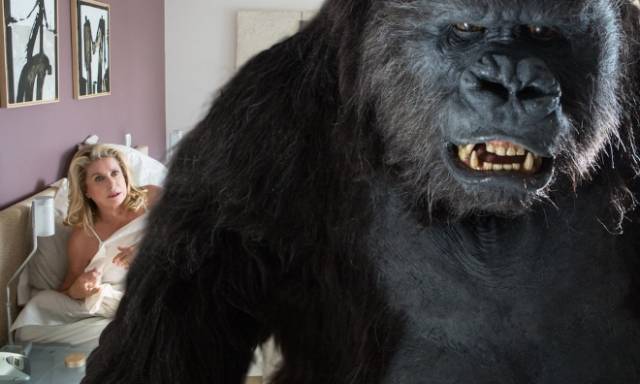
 The Brand New Testament is an aggressively quirky outing from Belgian filmmaker Jaco Van Dormael. Our heroine Ea is stuck in an apartment with her brutish father and meek, abused mother. As it turns out, said father is God, who engineers the world with an old computer through a series of cruel little rules (the line next to you will always be faster, your toast will always fall jam-side down). Meanwhile, the barely verbal, doddering mother sets the table for their second child, who Ea refers to simply as JC. Don’t set him a spot, he’s not coming back, says God. He might, she responds. Haha.
The Brand New Testament is an aggressively quirky outing from Belgian filmmaker Jaco Van Dormael. Our heroine Ea is stuck in an apartment with her brutish father and meek, abused mother. As it turns out, said father is God, who engineers the world with an old computer through a series of cruel little rules (the line next to you will always be faster, your toast will always fall jam-side down). Meanwhile, the barely verbal, doddering mother sets the table for their second child, who Ea refers to simply as JC. Don’t set him a spot, he’s not coming back, says God. He might, she responds. Haha.
Little of the movie is really coherent on a dogmatic level, so there isn’t much material to either offend nor, on the other side, really compel you. The movie feels like someone smashed Amélie into Bruce Almighty and just sort of hoped it would work out. God lives in the apartment complex in Belgium, having created humans after failing to really see how giraffes or tigers fit into the human fixings of the modern city (please don’t ask, I too do not understand). Ea decides to escape through the laundry machine (I don’t know either, sorry) after having a chat with a porcelain statue of her brother, Jesus Christ, who encourages her to go out, do a couple miracles, and get a couple apostles of her own. Before leaving, though, she uses her father’s computer to tell everyone exactly how much time they have to live, and then crashes it.
The remainder of the movie takes the form of Ea traveling with a homeless man who takes down the stories of each of her apostles: a beautiful, one-armed woman; an everyday schlub; a sex addict; a psychopath; an aging, wealthy housewife; and a young trans victim of Munchausen by Proxy Syndrome (where a parent treats their child as ill, and in so doing, makes them ill and beholden to the parent).
The movie has its moments -- the God/father in his grimy, plaid robe, demanding Ea come home and reboot the computer was especially funny on a subtler level. But it many, many more moments of unabashed affectation. Ea collects the tears of her apostles in a little vial. A fluorescent fishbone dances around one apostle for a bit. Another apostle becomes involved, maybe sexually, with a gorilla. All sexual liaisons begin with both parties lying awkwardly on a bed side-by-side, with the camera angled directly above their awed, nervous faces. There is a moment when, not one, but two plastic bags dance in the wind. I’m not kidding.
Van Dormael does not lack the skill to pull of beautiful visual moments. You just come out of the movie wishing he had sat down and sloughed off parts of the movie that were maybe inspired or derived from other sources, and really bore down into what he himself could do. Then maybe it would feel like less pastiche and be a lot more palatable.